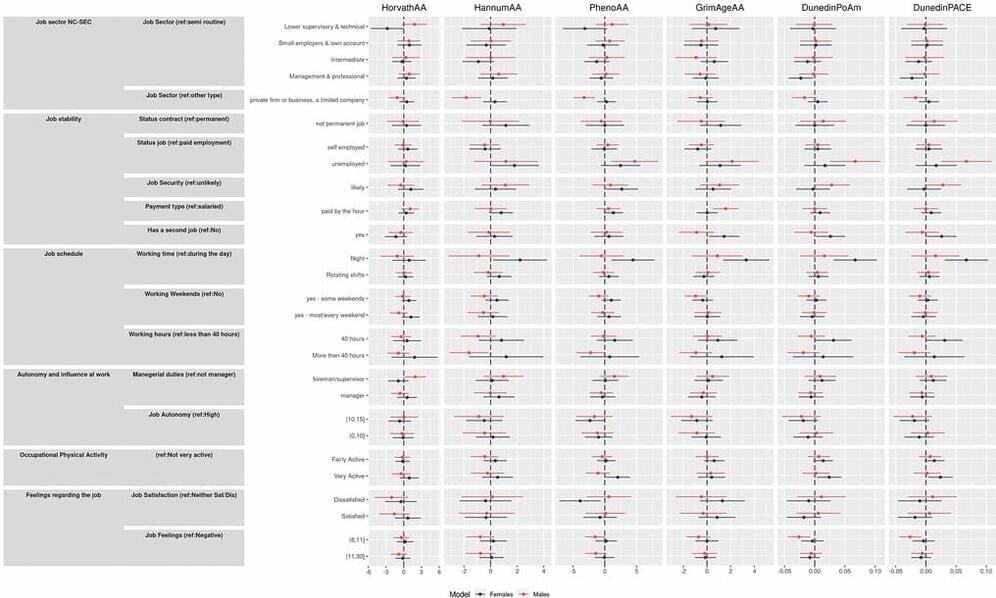Occupation-related stress and work characteristics are possible determinants of social inequalities in epigenetic aging but have been little investigated. Here, we investigate the association of several work characteristics with epigenetic age acceleration (AA) biomarkers.
The study population included employed and unemployed men and women (n = 631) from the UK Understanding Society study. We evaluated the association of employment and work characteristics related to job type, job stability; job schedule; autonomy and influence at work; occupational physical activity; and feelings regarding the job with four epigenetic age acceleration biomarkers (Hannum, Horvath, PhenoAge, GrimAge) and pace of aging (DunedinPoAm, DunedinPACE).
We fitted linear regression models, unadjusted and adjusted for established risk factors, and found the following associations for unemployment (years of acceleration): HorvathAA (1.51, 95% CI 0.08, 2.95), GrimAgeAA (1.53, 95% CI 0.16, 2.90) and 3.21 years for PhenoAA (95% CI 0.89, 5.33). Job insecurity increased PhenoAA (1.83, 95% CI 0.003, 3.67), while working at night was associated with an increase of 2.12 years in GrimAgeAA (95% CI 0.69, 3.55). We found effects of unemployment to be stronger in men and effects of night shift work to be stronger in women.










Leave a reply